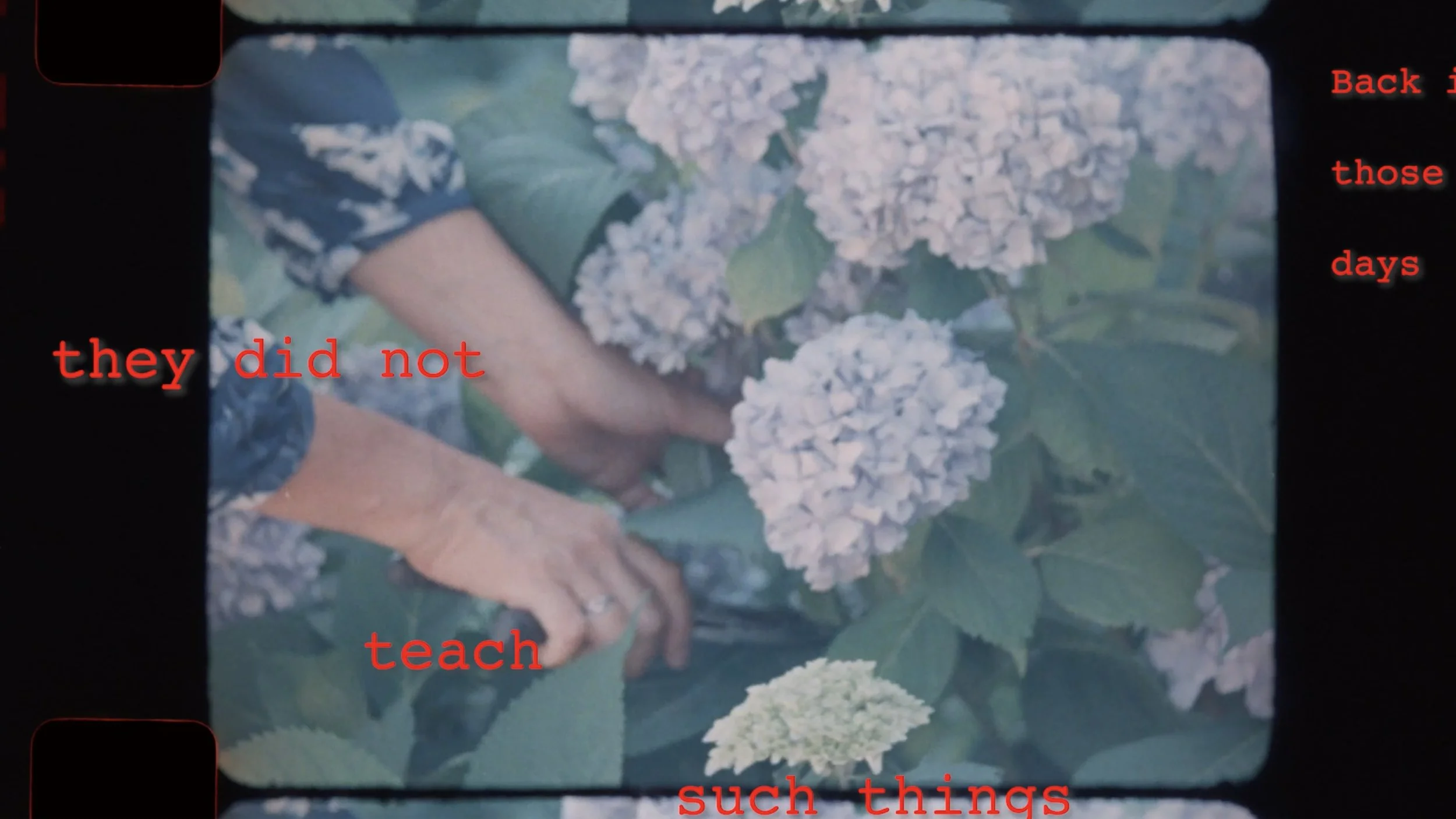




Hand Me Down: Mulan is the third chapter in a saga of experimental documentary films tracing the generations in the director’s family. Mulan is both her her given Chinese name, from her mother’s favorite Chinese novel, and also coincidentally becomes a massive American Disney hit when she was six years old in 1998. The artist adopts camcorder and Super8 footage as faux “home video” textures, lip-syncs mistranslated Britney Spears music videos and re-enacts postfeminist RomComs from her youth to critique American white feminine beauty conventions she could not assimilate into. She re-enacts and re-creates the opening sequence to Devil Wears Prada layered with confessional voiceover mimicking reality television to challenge postfeminist racial scripts imposed on her. This film is an exploration of her girlhood in predominantly white suburbia, second-generation American diasporic alienation, and overlapping influences of fetishization and bipolar disorder from a formative manic episode in her mid-twenties.
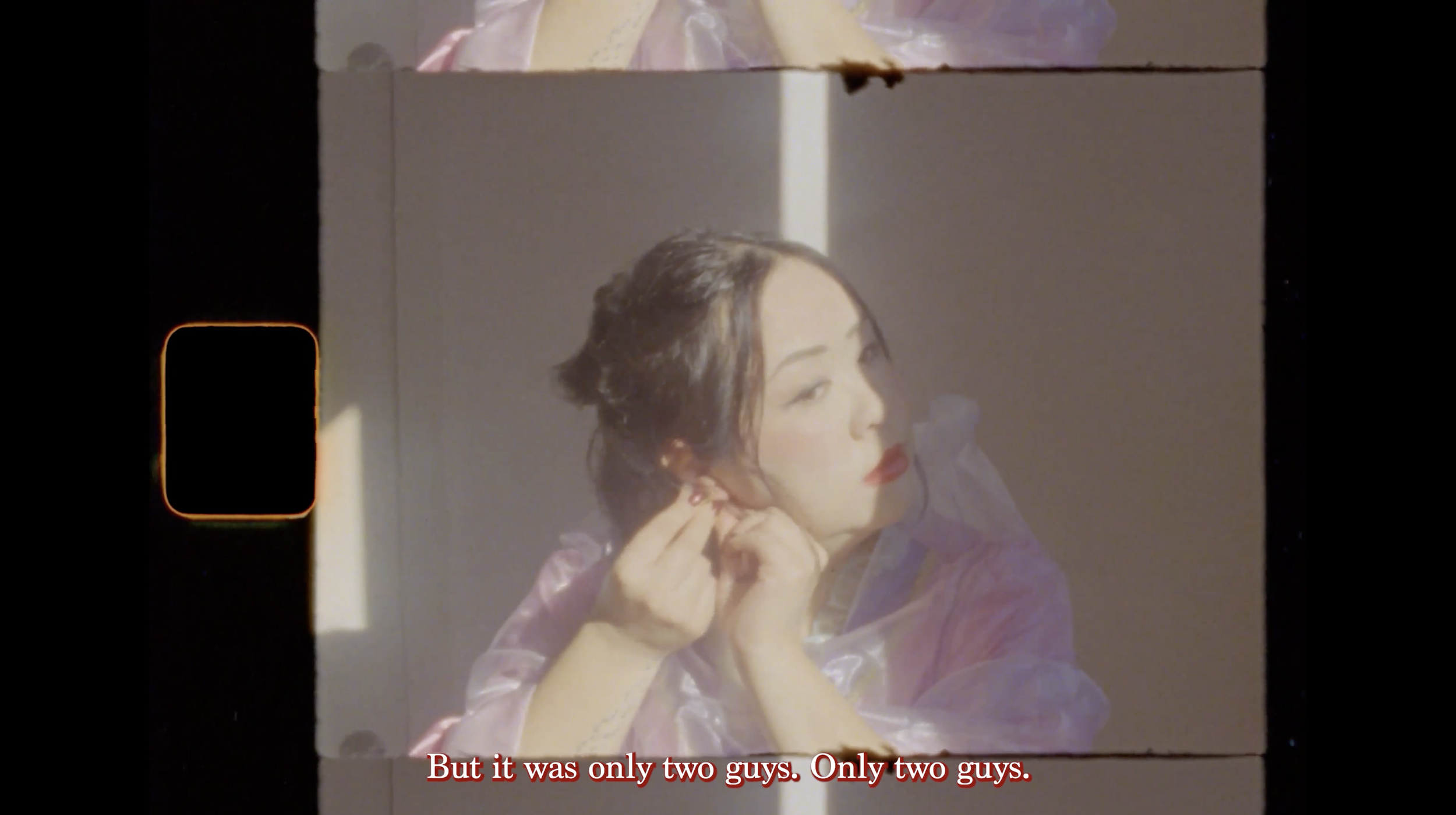
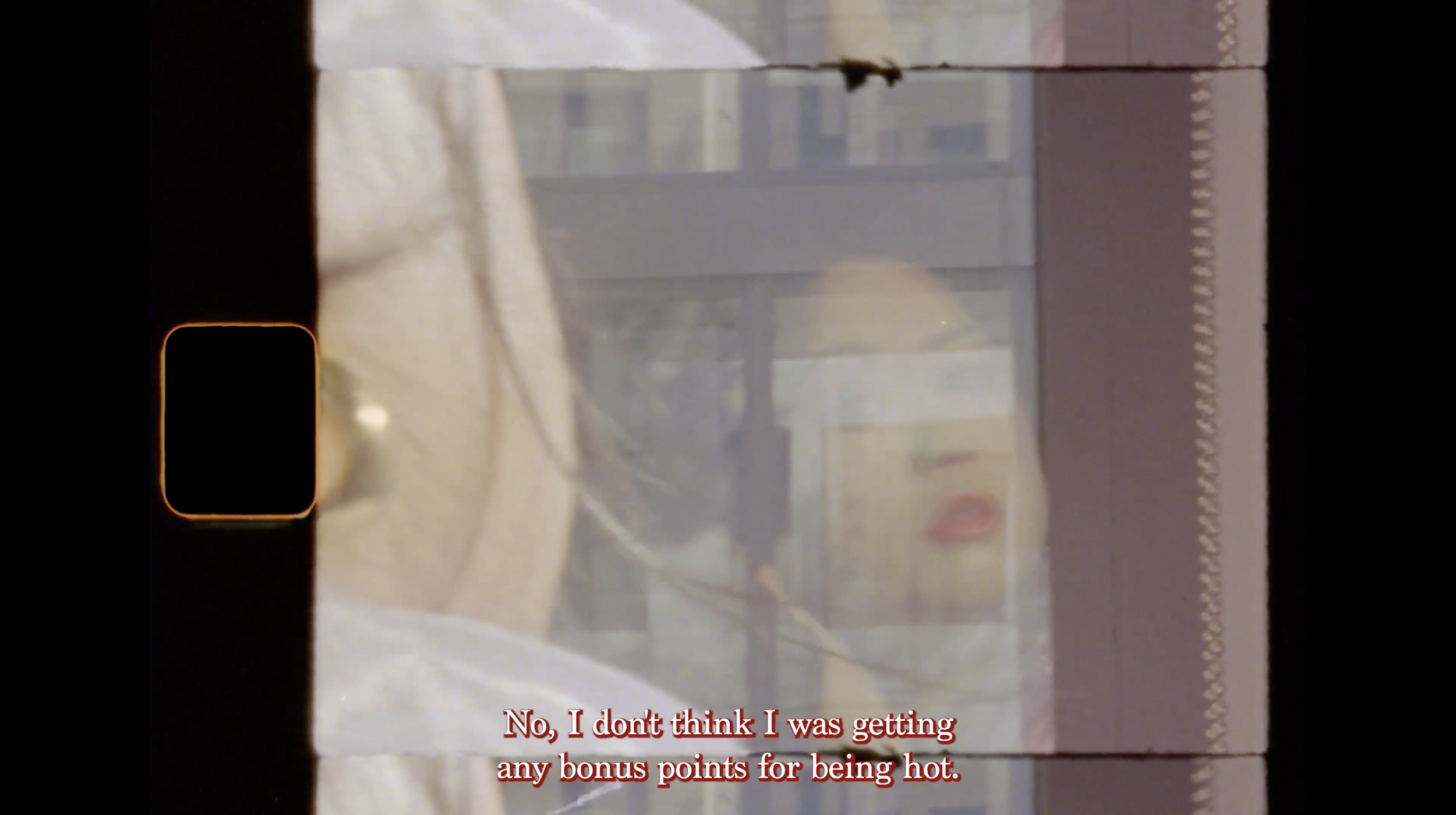



Hand Me Down: Liuyang is the second chapter in her generational documentary saga. It tells story of Liuyang, the director’s mother, and her immigration to the United States following traumatic sociopolitical upheaval in late 1980s China. Liuyang shows her daughter Diana how to make the family dumpling recipe and shares bittersweet stories about those first few years in the United States. Diana asks about navigating the male-dominated corporate culture of big tech, stereotypes of Asian tiger moms, and the model minority myth. Diana confronts her mother’s post-racial, post-feminist politics over the dumpling-making process. Between shots of their tender mother-daughter bonding, archival footage, and GenAI are spliced to explore the historical uncertainty. This film is a story of a daughter trying to see the world through her mother’s eyes.



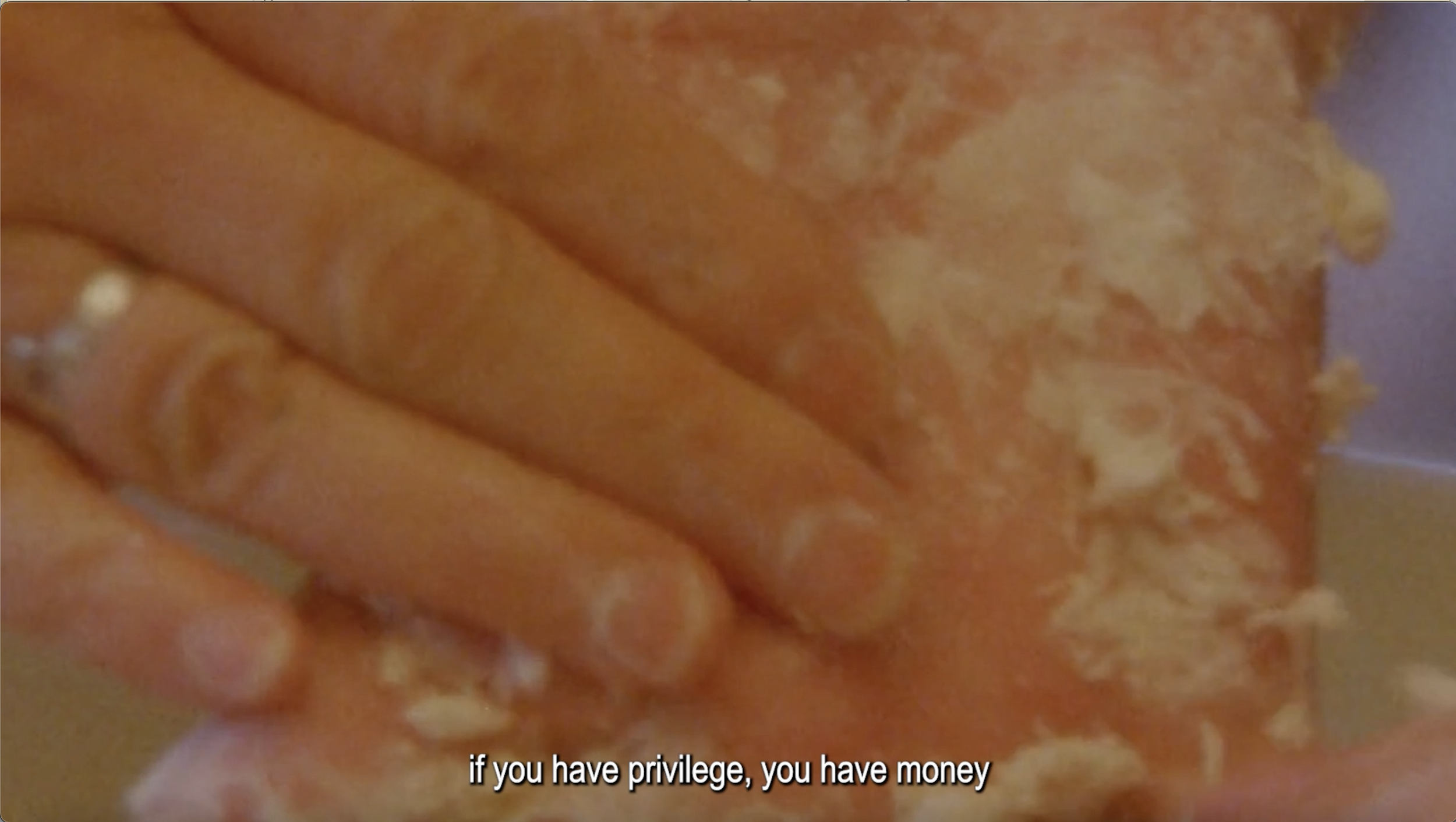

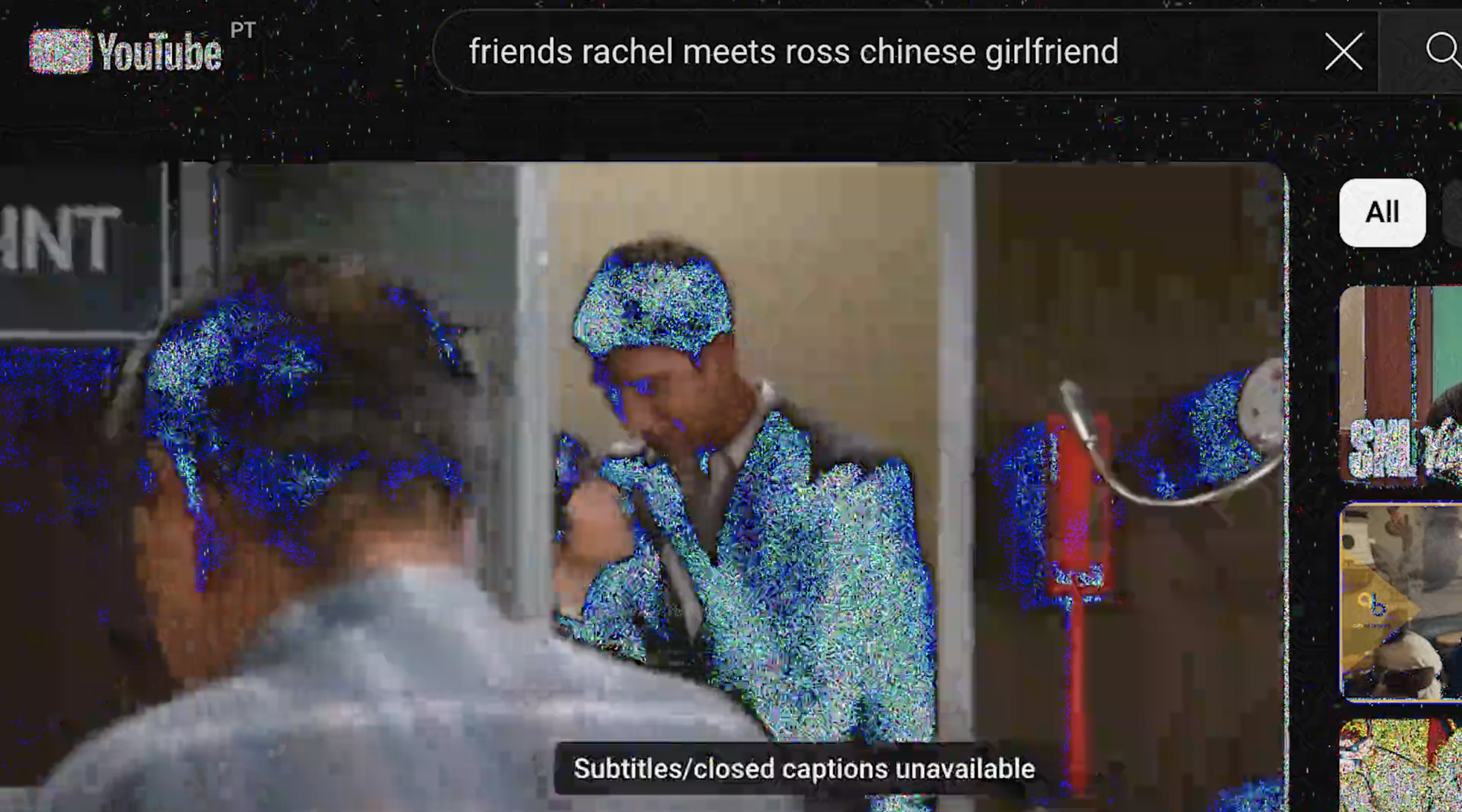
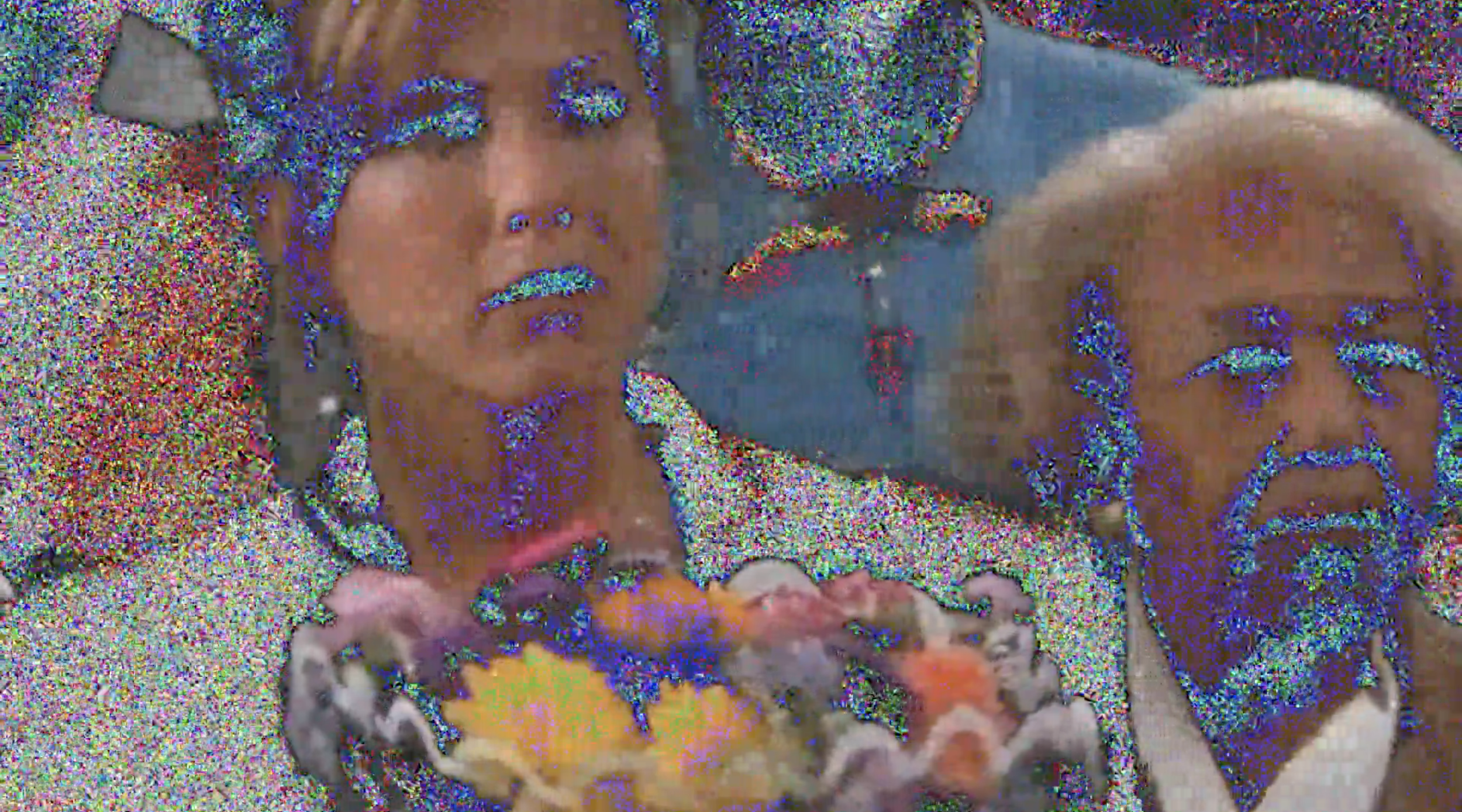
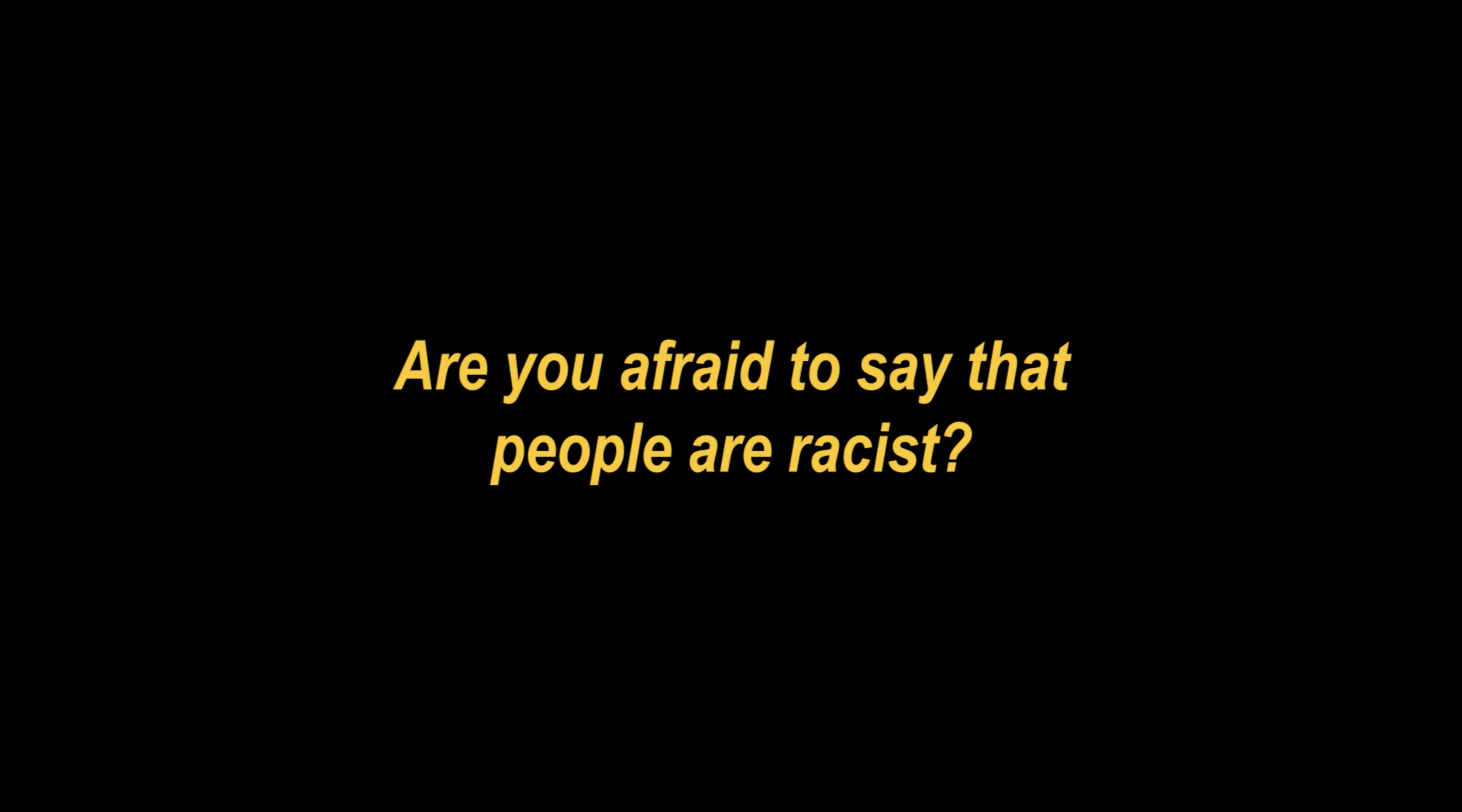
Hand Me Down: Xiaohui is the first chapter in an experimental documentary series tracing three generations of Chinese American women through the Cultural Revolution, the 1989 Tiananmen Protests, and suburban assimilation. Filmmaker Diana Mulan Zhu interviews her grandmother and mother, exploring rarely discussed topics in immigrant Asian families, such as sex education, menstruation, and feminism. The film highlights generational tensions, with her grandmother holding traditional views on gender and her mother embracing a neoliberal form of feminism, in contrast to Diana’s own radical, queer perspectives.
Visually, the film blends archival footage with surreal AI-generated sequences, creating constantly morphing and unstable imagery that reflects Diana’s disorientation with her family’s past. With fragmented translations from Diana’s childhood vocabulary, subtitles are used unconventionally, challenging the audience’s understanding of language and cultural belonging.
DOCNYC Film Festival - World Premiere
Chroma Art Film Festival - Official Selection
Portland Art Museum PAM CUTS Short Docs Showcase





